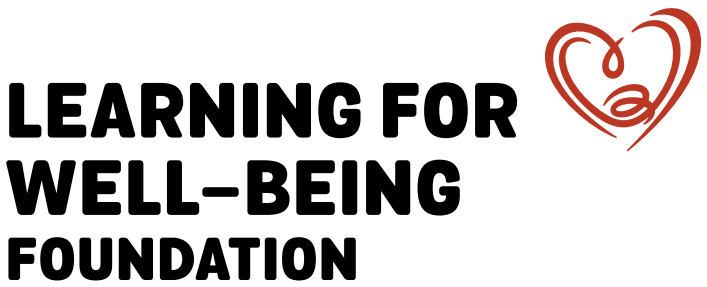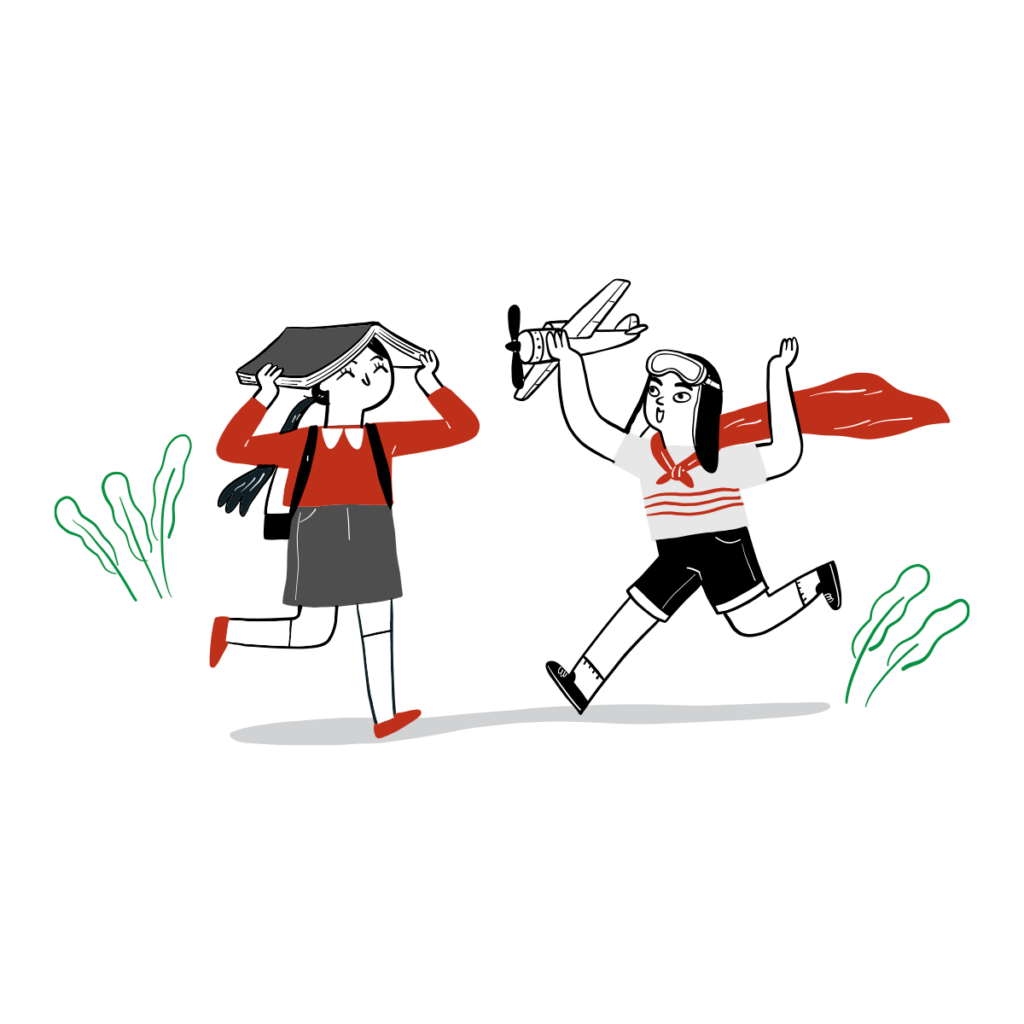Creating and Sharing Knowledge
This area focuses on research, evaluation and monitoring, and external communication work based on the Learning for Well-being framework.
We are interested in expanding what we measure so that, as individuals, groups, and societies, we can pay greater attention to areas of life that are sometimes marginalised or ignored. Thus, we aim to initiate and engage in research initiatives that uncover new ground, and new ways in which measurements can occur.
Current activities include
- research on the development of core capacities
- developing a school well-being survey for pupils, parents and professionals
- publication of academic or professional articles,
- creating content for our communications channels
What Makes Me?
Core Capacities for Living and Learning
Core Capacities refer to a set of life skills that are naturally present in young children and that can be cultivated through various practices. The Learning for Well-being Foundation is particularly interested in making these core capacities explicit in all learning environments for children and adults.
The Learning for Well-being Foundation partnered with UNICEF’s Office of Research, Innocenti, and the US-based Fetzer Institute in a two-year research project, beginning in January 2018. This project will be the first stage of a multi-year study on developing practices and products to strengthen core capacities.
The research aims to inform real, positive and efficient change in general education policies and practices. The initial effort will assess the current state of the field through a series of documents, guided by experts collaborating across disciplines:
- What do we know about data and previous research on core capacities?
- Which concepts and definitions already exist?
- What has already been measured?
- What does studies show on age-sensitive development?
- What are their applications and impact?
- What has been the role of policy, so far?
PARTNERS:
UNICEF Research Innocenti Centre; Fetzer Institute
Assessment as Dialogue
Assessment that Supports Whole Child Development
Together with our partners we collected over 20 practices of innovative and formative assessment methods. Our main question: how can we support the unfolding of each and every child’s unique potential through contextualised, individualised, participatory assessment processes that give learners a feeling of agency and self-efficacy?
Early school leaving can be tackled if, instead of being frustrated by marking systems, each individual learner’s self-development is appreciated and supported. This allows pupils to own their own learning experiences, as the learning process is not imposed from outside but rather experienced as an engaging learning pathway.
It is important to support human development in the context of a world of accelerating technological changes, a world of increased mobility, and an increasingly segregated society. Young people need to experience a sense of purpose and accomplishments when confronted with unexpected changes. If this is learned early in life, more security will be felt that they will be able to deal with an unpredictable future.
Find here the link to the project website: http://personalisedassessment.ecswe.eu
International and Canadian Child Rights Partnership
Intergenerational Relationships at the Heart of Child Rights
“The International & Canadian Child Rights Partnership (ICCRP) identified a critically overlooked element in realising child rights: intergenerational relationships. The expanded ICCRP will now focus on this new, innovative research direction to examine how intergenerational relationships can transcend current barriers to implementing children’s rights, through intergenerational partnerships, in research, policy, and practice.”
We are asking: “How can intergenerational relationships contribute to, challenge, and transcend barriers to realising child rights?”
The Learning for Well-being Foundation is contributing with ACT2gether as a case study, and participating in the various workgroups supporting the 7 year project.
PARTNERS:
Canadian Child Rights Research Group (CA); International Institute on Child Rights and Development (CA)
LINK:
Well-being School Survey
Gathering the views of pupils, parents and professionals
A school-based electronic survey based on the L4WB framework to assess the experience of well-being in schools by pupils, parents and professionals.
The survey maps the key areas contributing to school well-being by asking all stakeholders the same questions. The results lead to a process of partnership between all school actors in creating and monitoring well-being.
PARTNERS: Education for Life (IL); Tmurot (IL)
Voice of Children Survey
Asking children about their school experiences
Having direct reports on the perspectives of children and young people is of vital interest to the L4WB Foundation. Such tools can provide critical insights, at all levels and in all sectors, to those working with children and young people, and for formulating policy.
Two versions of the Voice of Children have been developed.
Voice of Children 1
In 2006, the L4WB Foundation designed and piloted a first Voice of Children survey in Jordan, Lebanon and Palestine with the support of the Ministries of Education in each country, and in UNWRA for Palestinian refugees. A representative sample of 1500 students in grade 10 (14 to 16 years old) were surveyed to understand how school as a learning environment supports their well-being. Focus groups were also conducted to further illuminate the surveys. Click here for the report.
Voice of Children 2
In 2007, on the basis of the outcomes of VOC1, the L4WB Foundation supported the work of a research group to update the conceptual framework and items of the first Voice of Children survey. This work was based on an extensive literature review. A manual for implementing this survey was produced in 2010 by the Education Development Center (USA), one of the partners of the L4WB Foundation in this process. Although this version of the survey was not field tested, the UWIC (University of Wales Institute Cardiff) conducted a number of focus groups with 14-16 year olds.
A follow-up to the original Voice of Children is planned as part of the ten year review of Elham Palestine.


